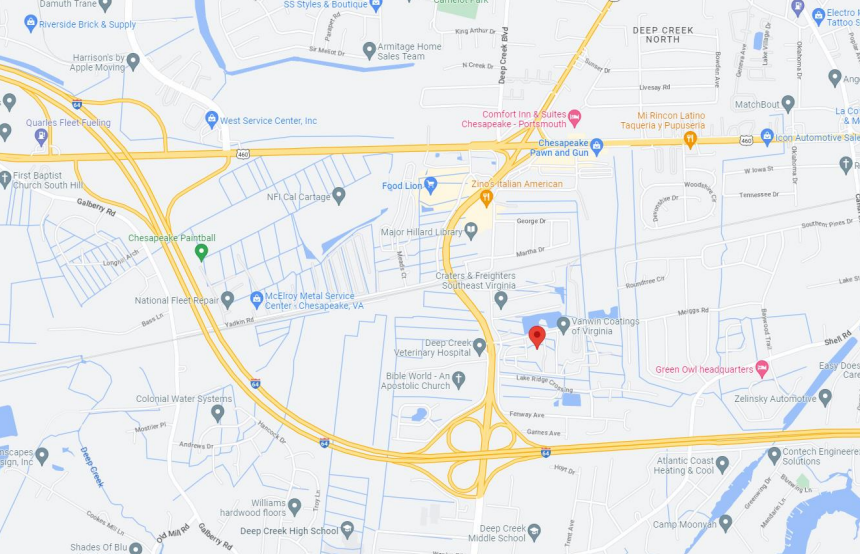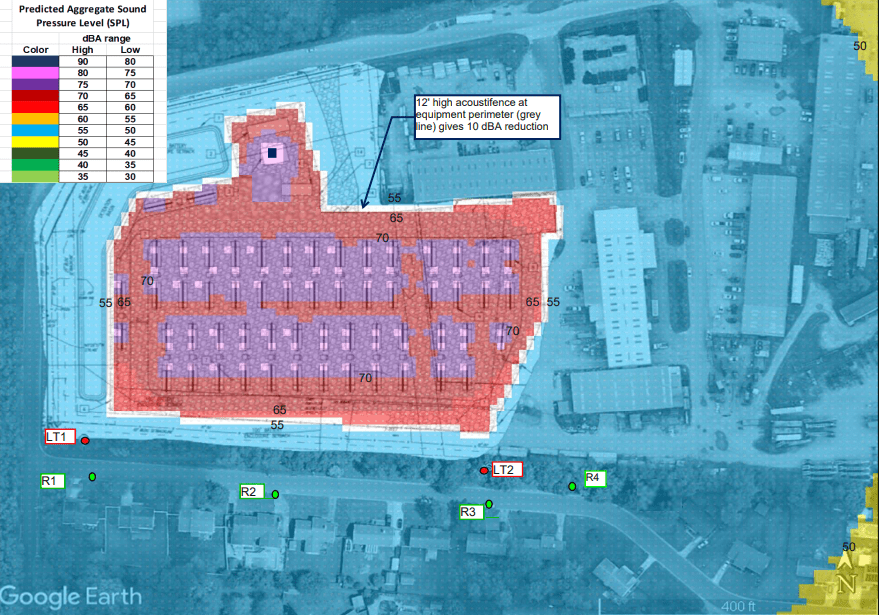CHESAPEAKE, Va. (WAVY) — A new lithium-ion battery storage facility planned for the Deep Creek area of Chesapeake, the first of its kind for the city, promises resiliency for the electric grid as Virginia transitions from fossil fuels to renewable energy sources over the next decades.
Though residents are concerned about the project’s proximity to many area homes, and what that could mean in the case of a fire.
The project from energy storage company Plus Power, called Crossroads Energy Storage, is expected to see construction begin in 2024, with the facility going online in 2026. Plus Power’s a Houston-based company with similar projects in Texas and Hawaii.
They say the facility will be “critical infrastructure” going forward, storing energy produced from “intermittent” energy sources such as wind and solar, as well as nuclear and natural gas, and using it to supplement the electric grid when demand is high.
Planners also touted battery storage’s benefits in the case of an emergency, like when large-scale fossil fuel plant failures led to rolling blackouts during Winter Storm Elliott in December 2022.
“A facility like ours will help to ensure that in that type of situation the battery will be able to discharge on the grid and ensure safe and reliable energy, “said Ben Weisel, Director of Permitting for Crossroads, who added that the facility can provide power to about 10,000 homes in the area.
The project will be located on about eight acres of land at 2601 Trade Street, near Dominion Energy’s Yadkin Road substation. A 115 kilovolt line will connect the substation to the Crossroads’ 114 battery Megapacks from Tesla.
However, unlike the handful of pilot battery storage facilities so far in Virginia through Dominion Energy, this project isn’t in a rural area. It’ll be close to many homes and businesses, something multiple residents and council members were concerned about.
Several hundred people connected to the Deep Creek community signed a Change.org petition asking the city to stop the project.

The main issue has focused around what would happen in the case of a fire at the facility. A fire at a lithium battery facility in California that uses Tesla’s Megapack caught fire last fall and led to a hours-long shelter-in-place advisory for nearby areas. Residents were asked to shut all windows and turn off ventilation systems due to the hazardous fumes, news outlets reported.
“I’m not against the idea of this project, our electrical grid is moving towards that of renewable energy … but the fact that this butts up against a residential neighborhood, there are concerns, people raise their families here, what happens if there’s a fire?” said Blaizen Buckshot Bloom, a political activist who said he was speaking on behalf of people he talked with in the area.
“How about the people that are living there? Do they have to stay in their homes for two weeks due to the toxic fumes?” another resident asked council at their March 21 meeting.
City leaders though said their hands were tied for Crossroads, as the proposed site has long been zoned light industrial. Crossroads is already permitted to move in, while another battery storage project proposed near the Gilmerton Bridge needs a conditional use permit before it can operate, Chesapeake City Manager Christopher Price said at the March 21 meeting.
“This use is already permitted on this site … it’s been permitted on this site since 1963,” Price said. “
That night’s vote (a 7-2 vote with council members S.Z. “Debbie” Ritter and Dr. Ella Ward voting no) instead was for a resolution for mitigation requirements above what the zoning required, Price said. Those include “extra mitigation, extra buffers, extra landscape, extra fire detection, extra noise suppression.”

With the agreement, sound levels for the facility will be capped at 60 decibels, said Grady Palmer, a real estate attorney representing the project. There will also be 24/7 monitoring of the facility and inspections on site twice a month, after resident feedback.
Paul Rogers, a New York City Fire Department lieutenant with the battery fire safety consultant Energy Safety Response Group, spoke at the March 21 meeting and said the facility will go “above and beyond” what Virginia fire code regulations and in compliance with the National Fire Protection Association’s NFPA 855 industry standard for NFPA 855.
“NFPA says we want you to …destroy your batteries … putting your batteries [a Tesla Megapack 2] into thermal runaway … a reasonable worst case scenario event to see what takes place,” Rogers said. “… some of the data that was collected, and information gathered during that was very, very positive … there were no explosions, there was no visible fire, there was very little smoke that came out of the container during the “reasonable worst-case scenario event.”
“The results came out and showed it would not spread,” Rogers said.
The protections will remain for the life of the project, which “will have a lifespan of at least 20 years,” Crossroads says. After that point, “the facility will remove the battery system and restore the land to pre-existing conditions.”
Crossroads submitted an Emergency Response Plan to the city, which starts on page 78 of the March 21 council packet. WAVY reached out to the Chesapeake Fire Department about the facility and they sent this statement:
The Chesapeake Fire Department has been in regular contact with Crossroads Energy Storage regarding the lithium-ion battery facility planned for Deep Creek. The Fire Department’s plan review process ensures that all construction meets the fire and life safety codes outlined in the Statewide Fire Prevention Code as adopted by the City of Chesapeake.
The Fire Department also has a work group researching best practices in fire suppression on all types of lithium-ion battery emergencies. As we continue to learn more about lithium-ion and battery energy storage systems, we will further adjust training, equipment, and public education to ensure the safety and welfare of the community.
The Chesapeake Fire Department is confident in its ability to respond to all hazards, including those involving energy systems.
Chesapeake Fire Department
Continue to check WAVY.com for updates.










































































































